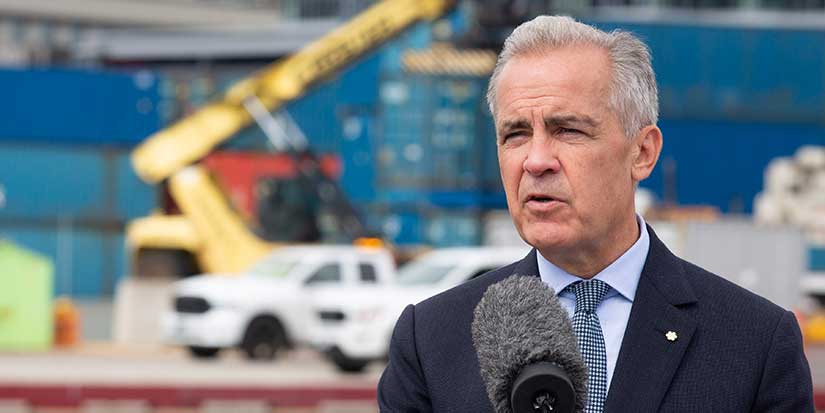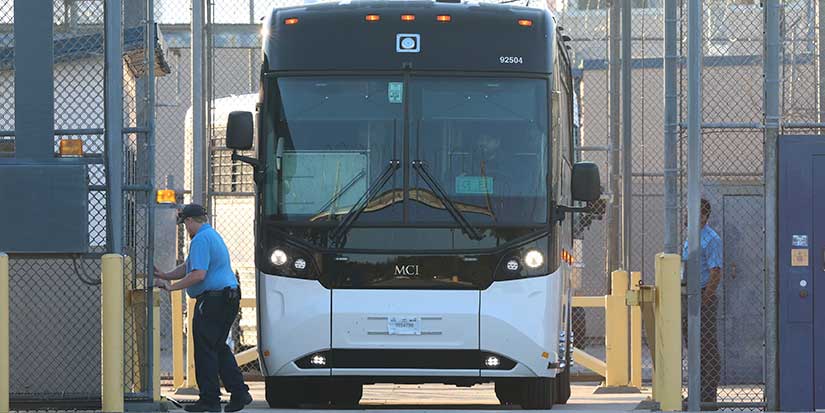National News
Carney says temporary foreign worker program needs a 'focused approach'
Published 10:26 PDT, Wed September 10, 2025
Last Updated: 2:45 PDT, Wed September 10, 2025
—
Prime Minister Mark Carney said Wednesday the temporary foreign worker program needs a "focused approach" that targets the needs of specific sectors and regions.
Carney's comments came as he outlined the government's plans for the fall during an address to the Liberal caucus at their annual retreat in Edmonton.
The prime minister said the government's plan to return immigration rates to "sustainable levels" includes reducing the number of non-permanent residents to "less than five per cent" of the total population.
Temporary workers and international students made up 7.1 per cent of Canada's population as of April 1, according to Statistics Canada.
"Now, it's clear that we have to work to continue to improve our overall immigration policies, and the temporary foreign worker program must have a focused approach that targets specific strategic sectors and needs in specific regions," Carney said in his speech to caucus.
"So we're working on that. Setting those goals, adjusting and working to ease the strain on housing, public infrastructure and our social services while we build that strong economy."
At a press conference in Brampton, Ont., on Tuesday, Conservative Leader Pierre Poilievre once again called on the government to scrap the temporary foreign worker program due to high youth unemployment, which hit 14.6 per cent in July.
Poilievre said immigrants are not responsible for housing and employment challenges and instead blamed the government.
"They've allowed massive abuses of the international student, temporary foreign worker and asylum claims system, with rampant fraud that happened right under their nose. And as a result, our youth can't find jobs or homes," Poilievre said.
"(Carney's) allowing corporations to bring in a record number of temporary foreign workers this year at a time when youth employment numbers are their worst in three decades."
Government data show the number of temporary foreign workers coming to Canada decreased significantly in the first six months of the year. About 119,000 temporary workers arrived in the first half of 2025, down from more than 245,000 in the first half of 2024.
The government's current target for temporary workers is to admit about 368,000 this year and 210,000 next year.
Before Carney's speech, former immigration minister Marc Miller said "you can't just scrap" the temporary foreign worker program and accused Poilievre of trying to whip up "anti-immigrant sentiments."
"We need immigration whether we like it or not in this country," Miller said.
Poilievre and the Conservatives are not alone in calling for an end to the temporary worker program. B.C. Premier David Eby said last week it needs to be eliminated or reformed due to high youth unemployment.
At an event in Toronto on Tuesday, Ontario Premier Doug Ford said if young people look hard enough, they can find a job.
Kari Norman, an economist with Desjardins, said while youth unemployment is abnormally high, temporary workers and immigration account for only part of the problem.
"We're several months into a trade war, a little bit of economic uncertainty and employers aren't hiring the way they were a few years ago," she told The Canadian Press.
Norman said the problem is compounded by younger workers being more likely to be laid off during periods of downsizing in both the private and public sectors.
Norman co-authored a recent economic study for Desjardins on youth unemployment.
She said the increased use of artificial intelligence for tasks like word processing and spreadsheets eliminates some entry-level corporate jobs.
While Statistics Canada tracks youth employment among those aged 15 to 24, the Desjardins study separated the groups into 15- to 19-year-olds and 20- to 24-year-olds. Norman said this is because those age cohorts tend to be looking for very different jobs.
"The worst impacts right now are happening to teenagers. So those are the kids who are looking for their first job," she said.
"If employers have one or two positions open and they advertise it and they get a thousand applicants, who are they going to hire, right? They're probably going to go for the ones who have a few years of experience."
Norman said a 16-year-old who can't get a part-time job now may miss out on early chances to develop workplace skills they can't get in school.
"Getting that first job gives you those two to five years' experience that you can then take forward with you and apply to something else down the road. So this is something that we may see youth struggle with for a little while," she said.
– David Baxter, The Canadian Press
With files from Jack Farrell and Kyle Duggan in Edmonton.































